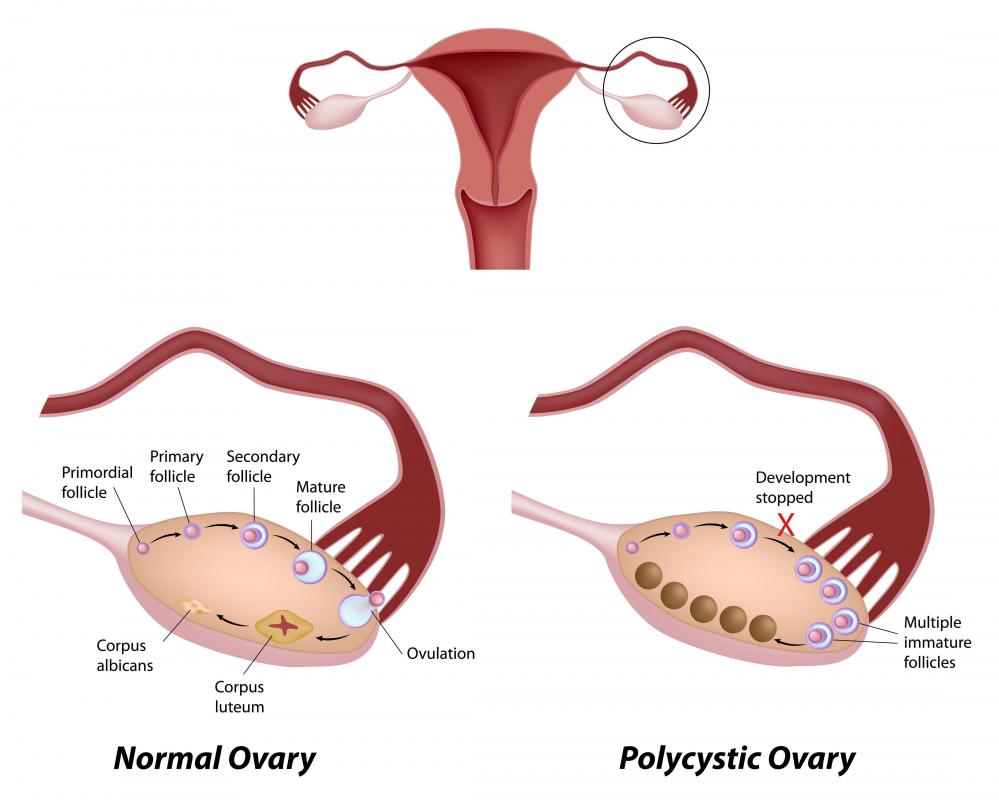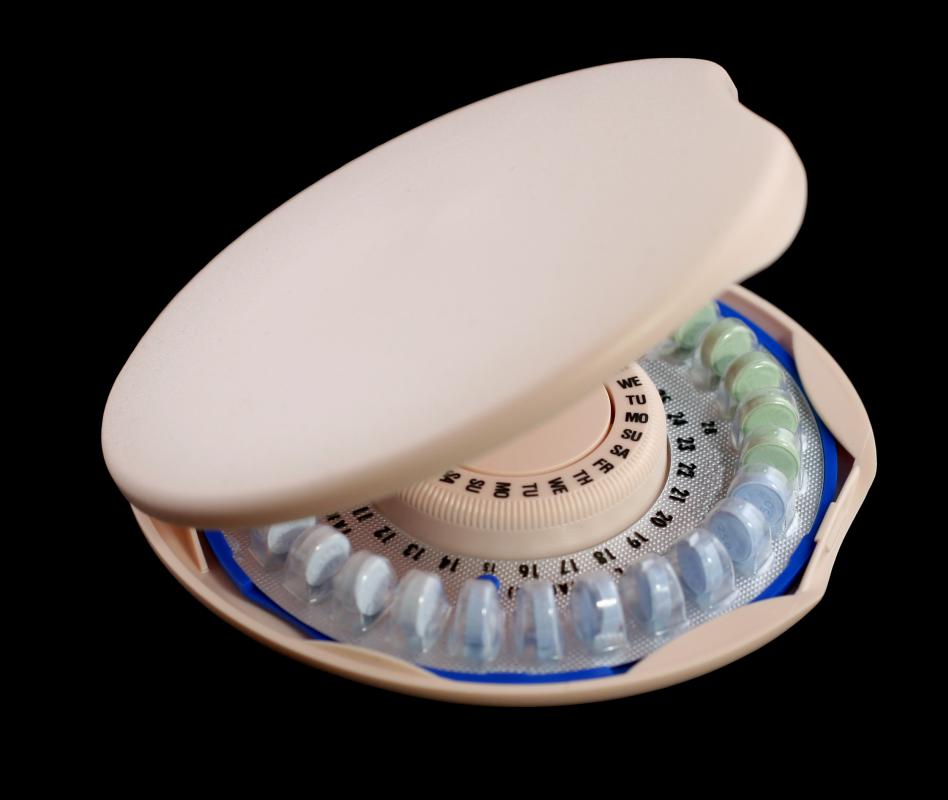At TheHealthBoard, we're committed to delivering accurate, trustworthy information. Our expert-authored content is rigorously fact-checked and sourced from credible authorities. Discover how we uphold the highest standards in providing you with reliable knowledge.
How do I Choose the Best Treatment for Ovarian Cysts?
An ovarian cyst is usually a common, temporary condition. Most of these growths are benign, or non-cancerous. Often, treatment for ovarian cysts is not necessary because they will simply go away on their own. Some medications may also help. Rarely, it may be removed surgically.
Most women will have an ovarian cyst at some point in their lifetimes. If you do not experience symptoms, you may not even know that you have one. When you do notice differences in your health due to this condition, it may be menstrual irregularities, pressure on the bladder, or pelvic pain. Some women also notice nausea and a sensation of heaviness in the abdomen. See your doctor for a proper diagnosis if you notice any of these symptoms.

Your doctor will likely conduct a pelvic exam for diagnosis. During this, he will determine if the cyst is irregularly shaped, how large it is, and whether it is filled with fluid or if it is solid. These factors can influence his recommendations for the best treatment for ovarian cysts.
If the growth appears to be normal, small, and filled with fluid, a physician will likely recommend that you simply wait for it to go away on its own. You may schedule follow-up pelvic exams about every month to monitor the growth. Women who experience pain may take an over-the-counter medication, such as ibuprofen, to alleviate it. A doctor may prescribe a stronger pain reliever, such as naproxen, for persistent or severe pain.

Treatment for ovarian cysts may also consist of birth control pills that prevent ovulation. These contraceptives may help reduce the risk of developing more cysts. The birth control shot also prevents ovulation. If you have experienced this medical condition more than once, you may be a good candidate for this method of prevention.
Large cysts and those that appear abnormal may require surgery. Growths that are solid, or a mix of solids and fluids, are also more likely to be cancerous. The surgeon may use laparoscopic surgery for smaller cysts that are less likely to be cancerous. This technique uses a very small incision. Laparotomy, which requires a larger incision, may be used for larger growths that are likely to be malignant.

Depending on your exact medical condition, the surgeon may only need to remove the growth. Sometimes, the affected ovary is also removed. Treatment for ovarian cysts that are cancerous often requires a hysterectomy. This means that your uterus and ovaries will be taken out, along with the abnormal growths. Before undergoing any surgery, talk to your doctor about the potential risks of the operation.
AS FEATURED ON:
AS FEATURED ON:



















Discussion Comments
I guess treatment nearly always depends on how big the cyst is and whether the doctor thinks it's cancer. A woman who used to go to our church had an ovarian cyst, and the doctor thought it was benign. Even though he kept an eye on it, it turned out the cyst was malignant and it was stage III when the treatment was started, but it was really too late.
She lived, I think, five years after her diagnosis, but it finally was too much for her. She was only 38 when she died. It was very sad, and a lesson not to take ovarian cysts lightly.
A co-worker of mine had surgery last year to remove one ovary because she had a large cyst on it that didn't respond to any kind of treatment. She tried hormone therapy, but it didn't help.
Thankfully, the cyst was benign -- it was just huge. Unfortunately, she has been having the symptoms again and is afraid her other ovary has a cyst as well. She's had some testing, but it has been inconclusive. This has really upset her because she's getting married next year and was looking forward to becoming a mom. At least there are other options women can explore these days.
Post your comments